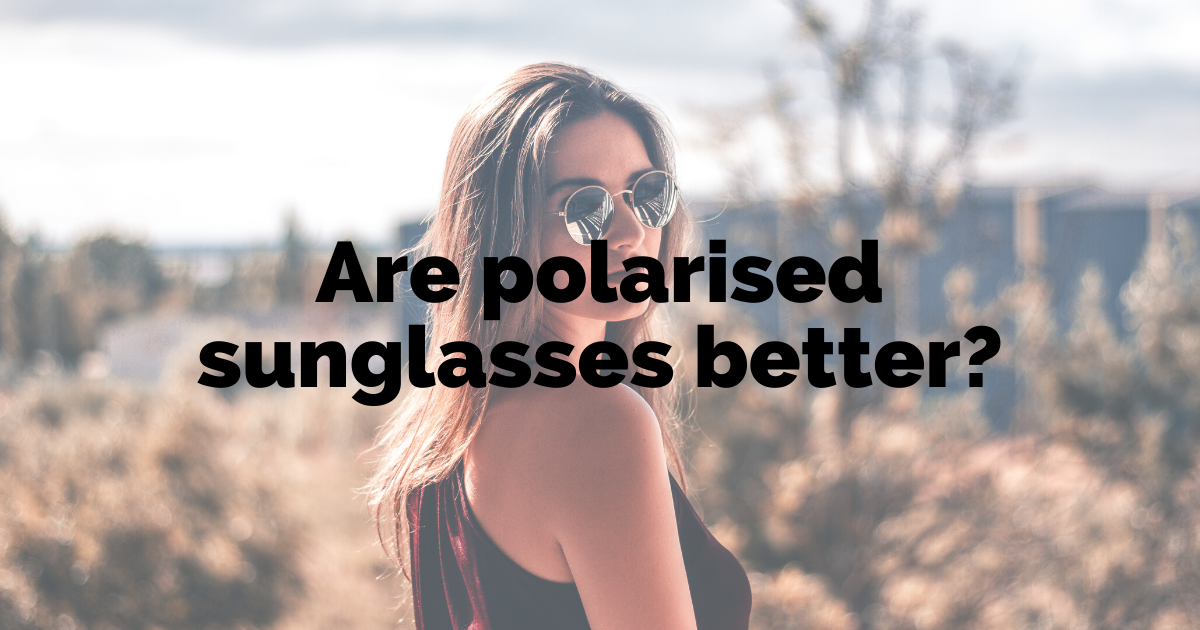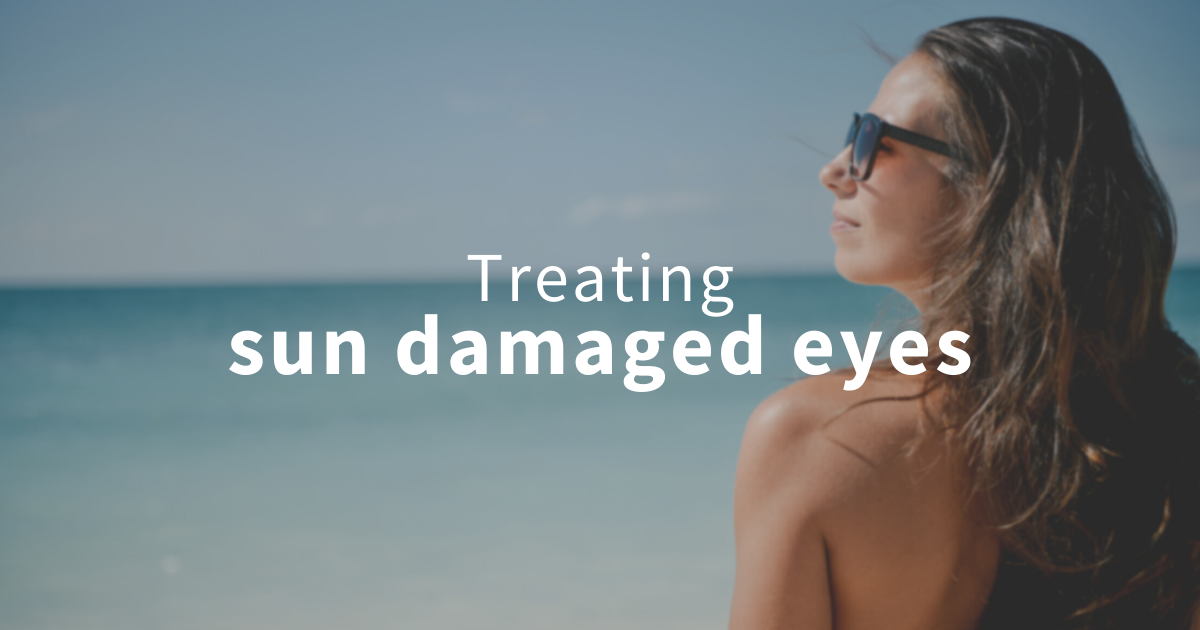Polarised sunglasses
Sunlight: it’s a tricky thing. We love it, our bodies need it, but it can play havoc on our eyesight (not to mention our skin). Not only does prolonged exposure to sunlight endanger the most important parts of our eyes, sunlight can also mess with our depth perception and can even distort colours.
How does sunlight do this, we hear you ask. It’s done through glare, and by the effects created by sunlight as it bounces off certain horizontal surfaces like water, roads, glass, and snow. This can be really dangerous, especially if you’re driving.
Fortunately, we live in a time where scientific possibilities are boundless and there’s a solution to everything. The solution to our problems with glare are polarised sunglasses and they’ve hit the market big time.
If you’ve been thinking about buying a pair of polarised lenses, take a look at our guide. It has all you need to know.
First: how do polarised lenses work?
Sunlight can reflect in a few different ways. When sunlight bounces off a horizontal surface, it is reflected back in a similarly horizontal way. This is important: sunlight hitting a horizontal surface will reflect back horizontally, which causes a glare when it obscures your vision. If you’re playing a sport, for example, it can be really off-putting. If you’re driving, it can be life-threatening.
So, to combat this, polarised lenses are fitted with a laminated filter that will only permit light that is reflected vertically. Basically, the filter lets in light which will not obscure your view and create glare.
Are there different types of polarised lenses?
1.1mm and 75mm – what’s the difference?
There’s a price range when it comes to polarised lenses. Brand and quality aside, there are generally two kinds of polarised lenses and they relate to thickness: 75mm and 1.1mm.
1.1mm lenses are thicker than 0.75mm and are, for that reason, slightly more durable and hard-wearing. 1.1mm lenses are popular with sportspeople (watersports, fishermen, and skiing) and those of a clumsier disposition. You pay a little extra because they’re simply thicker and will withstand a lot more.
That said, 1.1mm lenses are great for everyday use. If you’re not expecting to be hitting the slopes every week and you just want to beat glare while you’re driving, 0.75 will be fine.
So, are polarised lenses worth it?
We think they’re totally worth it. If you’re a fisherman and you can’t see the water because of glare, then polarised lenses are the solution. If you’re out on the road a lot, then polarised lenses are just what you need to stop glare and prevent an accident. They’re just one of a range of lenses we’ve made available at Arlo Wolf.
If you’re not yet convinced, here are some pros and cons to polarised lenses.
Pros
- Polarised lenses reduce eye strain caused by squinting at the sun.
- Because glare distorts colour, your contrast and visual clarity will improve by using polarised lenses.
- You’ll reduce the chance of accidents while driving.
- If you’re a sportsperson, polarised lenses will prevent glare from obscuring your vision (which is why they’re popular with skiers and snowboarders).
- Polarised lenses are kinder on those with sensitive eyes (especially those with underlying conditions like macular degeneration and cataracts).
- If you’ve recently had eye surgery, polarised lenses are recommended when venturing outside.
Cons
- Some who try polarised lenses do not like the effects and complain of disorientation (although this is rare).
- Polarised lenses can cause distortions when viewing liquid crystal displays (LCDs) which makes some mobile screens and other displays unreadable.
- Pilots cannot wear polarised lenses as they can make potential aerial obstructions harder to view.
Let’s stay in touch
We have written extensively on all areas of eye health, so if you found the above useful, you may want to check out the following articles taken from our trusty blog.
- Taking care of your eyes when working from home
- What is blue light and how do you reduce it?
- How does screen time affect eyesight?
- What can an eye test reveal?
- What are the UK standards of vision for driving?
If you have any other questions, feel free to get in touch. Have you tried our Try Before You Buy service yet? Simply order 4 pairs to your home, try them on, pick your favourite, and send them back with your preference. Easy! You can also see which glasses suit your face shape the best.
Finally, we have a vast range of women’s prescription sunglasses and men’s prescription sunglasses, should you want a new pair for summer.

 Passport Photos in the UK – Navigating the Rules with Style
Passport Photos in the UK – Navigating the Rules with Style 10 of the best glasses-friendly Halloween costumes
10 of the best glasses-friendly Halloween costumes How to treat sun damaged eyes
How to treat sun damaged eyes Autumn styles – our top picks for 2020
Autumn styles – our top picks for 2020